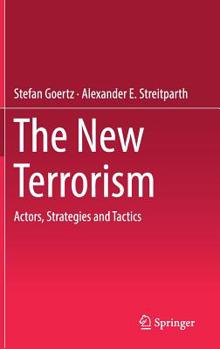The New Terrorism: Actors, Strategies and Tactics
Select Format
Select Condition 
Book Overview
In light of asymmetrical security threats in western democracies as well as in conflict regions, this timely book examines the actors, strategies and tactics of Islamist terrorism and transnational organized crime around the globe. The authors develop an interdisciplinary approach to understanding the ideologies, forms of cooperation, and technological means used in new forms of terrorism.
The book starts with an empirical analysis of the new Jihadism as a global Islamist theology and strategy. Furthermore, it investigates the interaction, cooperation and fusion of transnational organized crime and Islamist terrorism and highlights new communication technologies as vital tools for terrorism. Lastly, the book provides an analysis of asymmetrical strategies and tactics used by terrorist organisations, and of low-level terrorism. As such, it will appeal to all political scientists and criminologists studying terrorism, as well as to professionals at various national andinternational security services.





